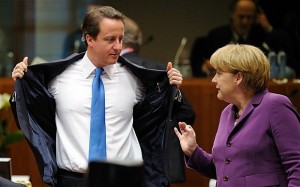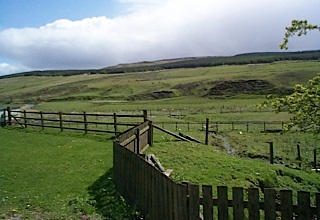
The fallout from David Cameron’s à la carte EU membership speech is likely to divide the UK’s parliamentary voice in the crucial final round of CAP reform negotiations. The UK prime minister has done more than offend European political figures who might once, under other circumstances, have heard him out.
He has effectively locked himself out of several processes at once and scored more than one own goal in domestic politics, into the bargain. This increases the opportunities to recruit MEP support for the crucial European Parliamentary vote on the CAP in March.
As the head of a UK coalition government, Cameron has ridden roughshod over the Liberal Democrat (Lib Dem) parliamentarians who keep him in power. Deputy prime minister and Lib Dem leader Nick Clegg is both a former MEP and former European Commission civil servant: he also speaks Dutch, Spanish, French and German.
Clegg was one of the first to criticise the prime minister’s bull-in-a-china-shop performance when one of Downing Street’s worst-kept secrets finally saw the light of day. He described Cameron’s notion of trying to rebuild Europe around a neo-liberal agenda as “implausible” to LBC radio listeners during a regular weekly news slot.
Facing a rising tide of unrest among his own party, Clegg’s own views on Europe are based on a better informed understanding of what Europe can become. In November, Clegg presented a more constructive view of Europe in this speech, given at Chatham House. Just days later, Cameron soured the atmosphere in an already highly-charged European summit.
It is perfectly possible that Cameron fails to attach any political priority to the CAP or UK food production. In a blog post, Agra Informa head analyst Alan Bullion notes that there is no mention of agricultural policy anywhere in his extensive speech.
There are a number of high risk assumptions that Cameron appears to be making. The most obvious is the idea that he will remain in power until 2015 and remain master of his political destiny. The Boundaries Commission this week scrapped proposals to reduce the number of parliamentary constituencies, a move that might have helped Tory re-election prospects.
Even if Clegg continues to toe the coalition line, it is clear that many Lib Dems are already deeply unhappy with the way the coalition has operated over the past three years. It would not take many rebel votes to make parliamentary life hard for the Tories, not to mention what might happen if the Lib Dems were ever to cross the floor of the Commons and join the opposition benches.
Nor is it a foregone conclusion that Cameron would be re-elected with a clear majority when the country next goes to the polls. In the event of a hung parliament, it is a moot point how many Lib Dems would support a second coalition on the current basis, either.
Bullion points to a post-Christmas rallying of pro-European elements within the Tory party as members wake up to where their leader’s direction could take them. To be sure, this multi-millionaire descendant of England’s minor aristocracy will continue to rely on his pugnacious farm minister to bludgeon political opponents with neo-liberal funded dogma, but the National Farmers’ Union policy director Martin Haworth conceded to Bullion that UK farming would be better off in Europe than out.
One UK NGO source told ARC yesterday: “The EU is capable of good things, even if the COMAGRI vote is not one of them.” Another regretted the “consolidation” of neo liberal tendencies across Europe, encouraged by the current incumbent of Downing Street.




